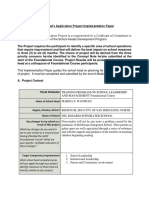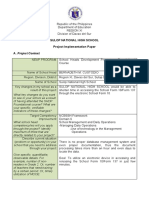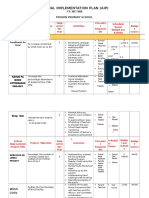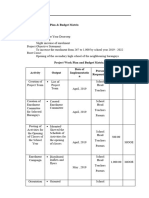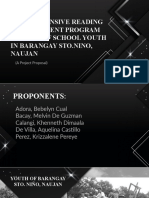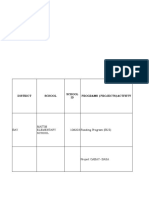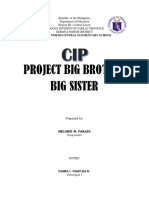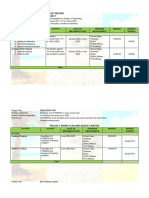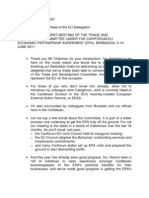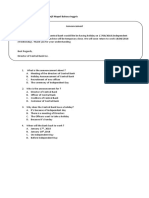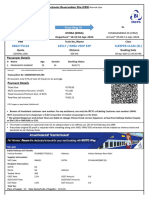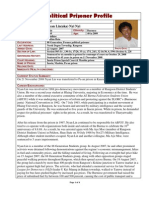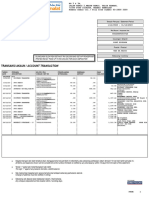0% found this document useful (0 votes)
31 views3 pagesADM S11 Project Design
The project 'ADM S11 – Bridging the gap: Personalized Learning for Two Disadvantaged Learners' aims to enhance the academic performance of two specific learners through a personalized learning program using Adaptive Data Management (ADM). It involves three phases: assessment and planning, implementation and monitoring, and evaluation and reporting, with a focus on individualized learning plans and regular feedback. The project is set to run from August 15, 2024, to March 30, 2025, and will include collaboration with parents and guardians to support the learners' progress.
Uploaded by
nikki.123estreraCopyright
© © All Rights Reserved
We take content rights seriously. If you suspect this is your content, claim it here.
Available Formats
Download as DOCX, PDF, TXT or read online on Scribd
0% found this document useful (0 votes)
31 views3 pagesADM S11 Project Design
The project 'ADM S11 – Bridging the gap: Personalized Learning for Two Disadvantaged Learners' aims to enhance the academic performance of two specific learners through a personalized learning program using Adaptive Data Management (ADM). It involves three phases: assessment and planning, implementation and monitoring, and evaluation and reporting, with a focus on individualized learning plans and regular feedback. The project is set to run from August 15, 2024, to March 30, 2025, and will include collaboration with parents and guardians to support the learners' progress.
Uploaded by
nikki.123estreraCopyright
© © All Rights Reserved
We take content rights seriously. If you suspect this is your content, claim it here.
Available Formats
Download as DOCX, PDF, TXT or read online on Scribd
/ 3


